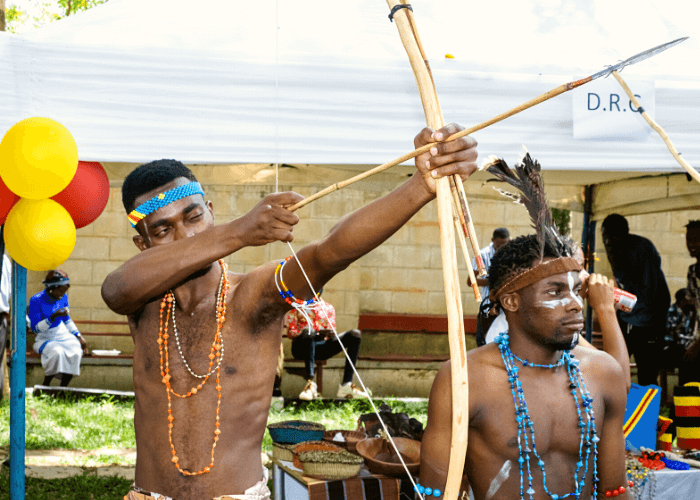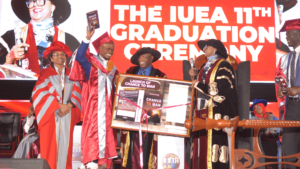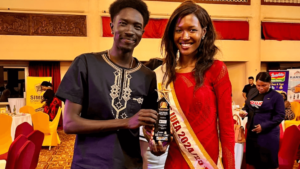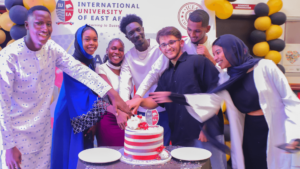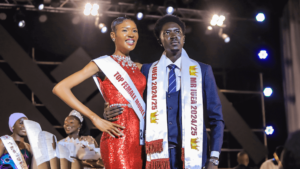This year’s IUEA Cultural Gala was celebrated under the theme: ” To Celebrate, embrace and discover culture”.
Eleven (11) African Countries at IUEA registered to participate; Eritrea, South Sudan, Rwanda, Somalia, Liberia, Cameroon, Uganda, Kenya, Tanzania, Nigeria, and the winners Democratic Republic of Congo (DRC).
The panellists of judges, Nameere Justine, Special Senior Presidential Advisor on Greater Masaka Region Affairs, a city lawyer, writer and TV personality, decided on the winners based on different criteria like discipline, presentation, language, creativity, gender and stage usage.

DR Congo kicked off the competition with a mind-blowing National anthem, sung originally in the French Language and traditional Congolese attires where the men were seen bare-chested and the women clad in the famous African fabric, “Kitenge”.
This was followed by a display of food and different tools from the African Cultures. DRC introduced the judges to different traditional foods, ornaments, garments and cutleries that are still being used in DRC.


Before being announced overall winners of the entire Competition, the anticipating DRC team was awarded in the category of modelling for best dressed and most organised traditional stylists. They also took home the third-best traditional dancers award, after South Sudanese (best and most creative traditional dancers) and Rwanda (2nd best Traditional dancers).
Judge Nameere then announced the competition’s overall winners. Uganda was named overall 2nd Runner-up, South Sudan named overall 1st Runner-up, and DR Congo, the overall winner.
“And the overall winner for the IUEA annual Cultural Gala 2022 is the new baby of the East African Community, Democratic Republic of Congo!”
Judge Nameere said.

DR Congo was also the winner of the IUEA annual Cultural Gala 2017. This year, they make another history for being the IUEA’s first winners in the Covid-19 era and the newest member of the East African Community.
IUEA offers a diverse and multicultural education that brings together students from across a variety of African cultures and beyond.
By: IUEA Connect

